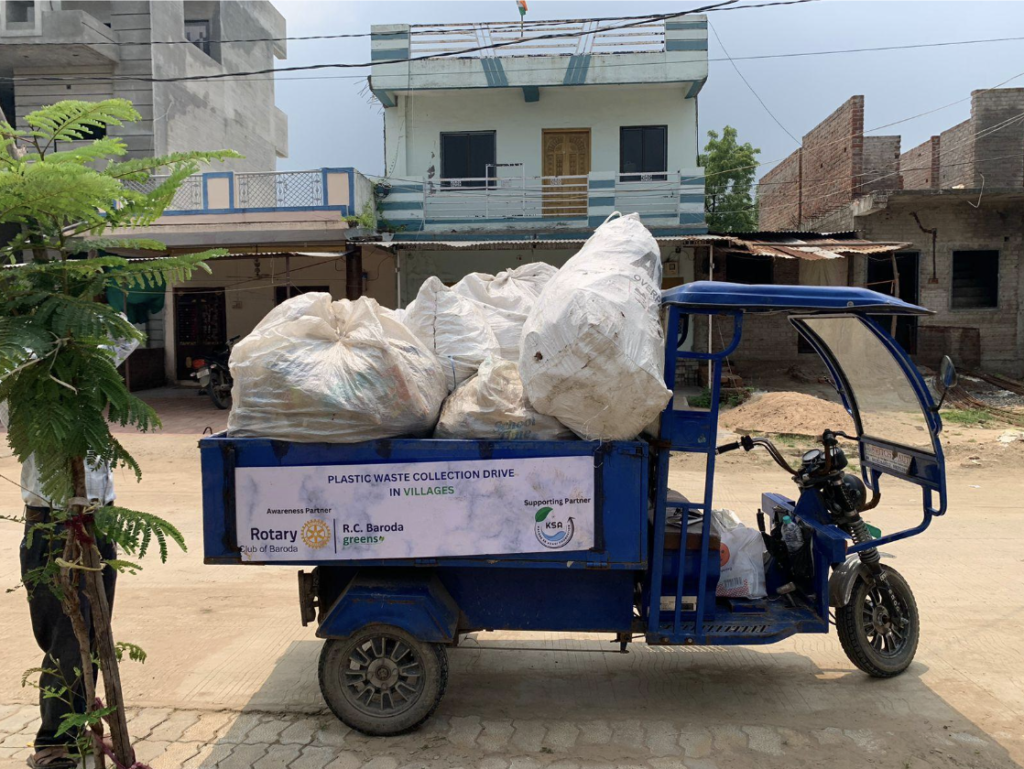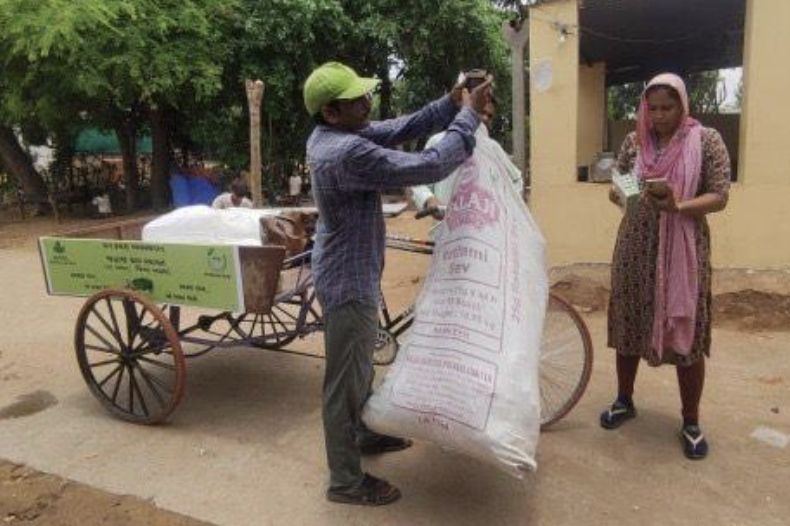By: Dr.Bindu Shirsath, ESRAG SA Correspondent
What can be done when people resort to dumping or burning waste material close to where they live, practices that harm public health, local economies, and the environment?
In the small village of Jahaj, Gujarat, India, a revolutionary initiative emerged to tackle the pressing issue of waste pollution. Led by Monali Prajapati, the Jahaj Village Waste Management project was sponsored by Nisol Manufacturing Company and managed by the Kachre Se Azadi Foundation under the guidance of Director Dr. Suneet Dabke. The Rotary Club of Baroda Greens joined as an awareness partner.
Reducing Waste Pollution
The project aimed to reduce waste pollution and promote a cleaner environment through efficient dry and wet waste collection. Dry waste was collected every 15 days and taken to the Dumad shed for micro-segregation, where plastic waste was transformed into benches. Wet waste was collected daily and processed in a rocket composter, producing liquid fertilizer that enriched the soil.

Plastic Waste Collection Drive
This innovative approach promoted a circular economy, reducing landfill waste and supporting local livelihoods. The project’s long-term sustainability provided residents with both environmental benefits and economic growth.
As the project’s success grew, it was replicated in the neighbouring Dumad Gram Panchayat and Baska Gram Panchayat, demonstrating its adaptability. Community engagement was at the core of the project, with awareness sessions, women’s groups, and children’s activities fostering a sense of ownership in maintaining village hygiene.
By educating the community on waste segregation and cleanliness, the project ensured the involvement of future generations in waste management. Local labourers were employed for daily waste collection and processing, promoting economic development and sustainable employment.
The Jahaj Village Waste Management project stands as a beacon of sustainable development and community engagement, showcasing a comprehensive approach to waste management that can be replicated in villages worldwide.

